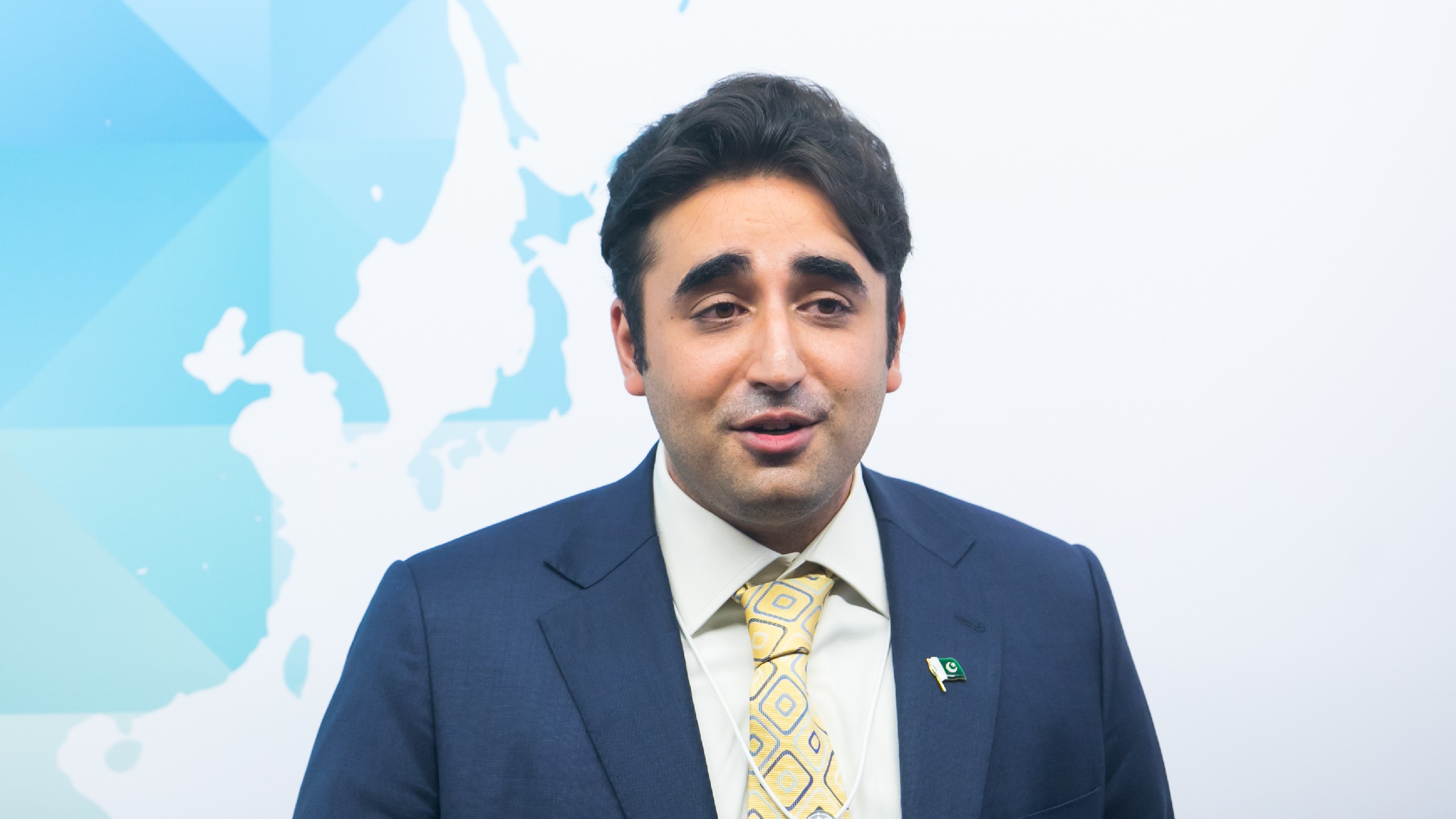Pakistan Offers Dialogue With India, Warns of ‘Water Aggression’ and Calls for International Mediation
Pakistan is willing to resume dialogue with India, but says the government of Indian Prime Minister Narendra Modi continues to pursue a hostile and aggressive agenda, according to Bilawal Bhutto Zardari, chairman of the Pakistan People’s Party and former foreign minister. Bhutto Zardari is leading a senior Pakistani delegation on a diplomatic tour of the United States, the United Kingdom, and the European Union, following a ceasefire agreement on May 10 that ended the most serious military escalation between Pakistan and India in decades.
The ceasefire was brokered with the help of US President Donald Trump, according to Bhutto Zardari, who praised the American president’s intervention. Speaking at a press conference in Washington, he said, “Pakistan is committed to promoting peace in the region and continues to make consistent efforts in that direction.” But he accused Modi of deceiving the international community and warned of an emerging “water warfare” that threatens regional stability.
“No country can unilaterally suspend the Indus Waters Treaty,” Bhutto Zardari said, referring to the 1960 World Bank-brokered agreement that governs the distribution of the Indus River system between the two nuclear-armed neighbors. He alleged that India’s decision to block water flow into Pakistan was a hostile act that endangered the livelihoods of 240 million people.
The Pakistani delegation, which includes nine high-level officials appointed by Prime Minister Shehbaz Sharif, has been visiting New York, London, and Brussels since June 2. The trip’s goal is to present Pakistan’s perspective on recent India-Pakistan tensions to Western allies and international institutions, including the United Nations.
Give the gift of hope
We practice what we preach:
accurate, fearless journalism. But we can't do it alone.
- On the ground in Gaza, Syria, Israel, Egypt, Pakistan, and more
- Our program trained more than 100 journalists
- Calling out fake news and reporting real facts
- On the ground in Gaza, Syria, Israel, Egypt, Pakistan, and more
- Our program trained more than 100 journalists
- Calling out fake news and reporting real facts
Join us.
Support The Media Line. Save democracy.


While in Washington, Bhutto Zardari and his delegation met with members of the US Congressional Pakistan Caucus, including Republican Representatives Jack Bergman and Ryan Zinke and Democratic Representative Tom Suozzi. He also addressed the Kashmir issue, criticizing Indian policies in the disputed region and comparing them to Israeli settlement practices.
Referring to demographic changes in Indian-administered Kashmir since 2019, Bhutto Zardari claimed that Modi’s government had taken inspiration from Israel’s settlement policy. “The Indian government appears to be drawing misguided inspiration from Israeli practices,” he said, later describing Modi as a “weakened imitation” of the Israeli prime minister.
Bhutto Zardari also raised concerns about India’s alleged involvement in acts of terrorism within Pakistan, saying the country has suffered heavy casualties and made significant sacrifices in its efforts to fight terrorism. “Any attempt to deprive 240 million Pakistanis of their rightful access to water constitutes a clear act of hostility,” he repeated, accusing India of using water as a weapon in the bilateral conflict.
The conflict escalated earlier this year after what Pakistan described as unprovoked Indian airstrikes that resulted in civilian deaths and infrastructure damage. Islamabad condemned the strikes and accused New Delhi of providing no credible evidence to justify the attacks. In response, India suspended its commitments under the Indus Waters Treaty, a move seen by Pakistan as an unprecedented violation of international law.
Signed in 1960, the Indus Waters Treaty is considered one of the world’s most successful water-sharing agreements. It divides the six rivers of the Indus basin between the two countries: India retains control over the eastern rivers—the Ravi, Beas, and Sutlej—while Pakistan manages the western rivers—the Indus, Jhelum, and Chenab. Under the treaty, neither country is allowed to alter the natural flow of these rivers unilaterally.
During the delegation’s stop in New York, Bhutto Zardari met with UN General Assembly President Dennis Francis and Secretary-General António Guterres. In a statement on X, formerly known as Twitter, he urged the international community to take a more active role in defusing tensions in South Asia, restoring the Indus Waters Treaty, and advancing dialogue over Kashmir.
While calling for calm, Bhutto Zardari warned that India’s actions—both military and environmental—threaten the fragile peace in the region. He reiterated Pakistan’s commitment to diplomacy but insisted that any meaningful progress must include international mediation and a renewed commitment to existing treaties and legal norms.

